TEACHING & EDUCATIONDesigning AI Agents ✖︎ Jobs To Be Done
Agentic prototype for class exercise
Year: 2025 | Role: Co-Lecturer, Creative Director
Overview
In collaboration with Elizabeth Glenewinkel, we explored how combining the Jobs to Be Done (JTBD) framework with emerging AI agent capabilities can reimagine complex workflows and user experiences. The workshop taught participants how to structure workflows, spot agentic opportunities, and prototype AI-supported systems. Our goal was to translate human needs into tangible agentic designs, bridging strategy, product thinking, and AI innovation.
Challenge
As AI capabilities expand, designers and strategists need better frameworks to identify where agents can add real value — not just automate tasks, but redesign workflows around human goals. Most teams lack a clear method to systematically connect user needs to agent design. We set out to solve this by fusing JTBD with agentic thinking.
Outcomes
Learned to create job maps using generative AI to structure complex work around user outcomes
Explored key agentic capabilities including planning, reflection, tool use, and collaboration
Applied JTBD to identify opportunities for AI agents within real-world workflows
Designed and prototyped agentic workflows using structured prompting techniques
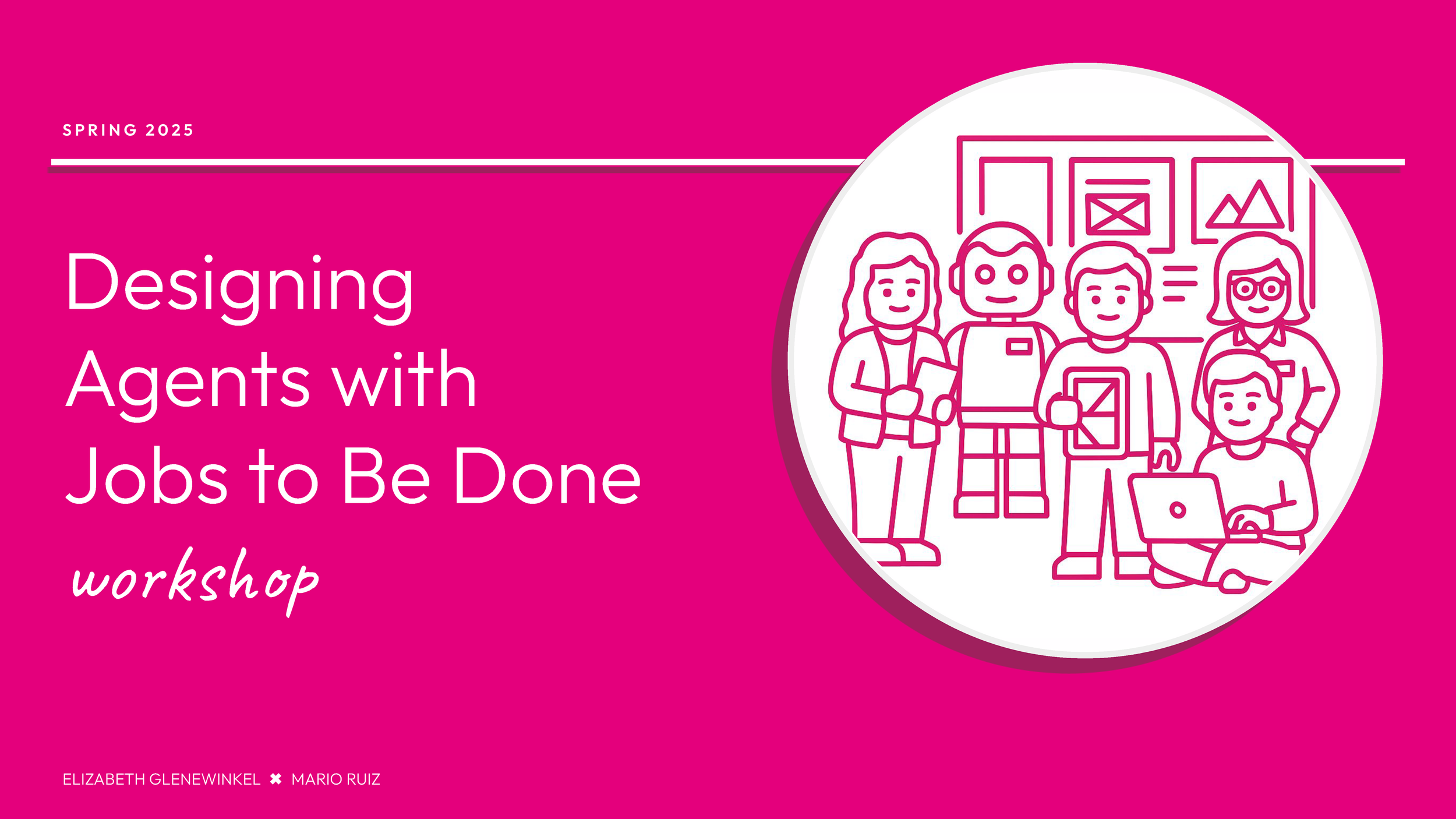
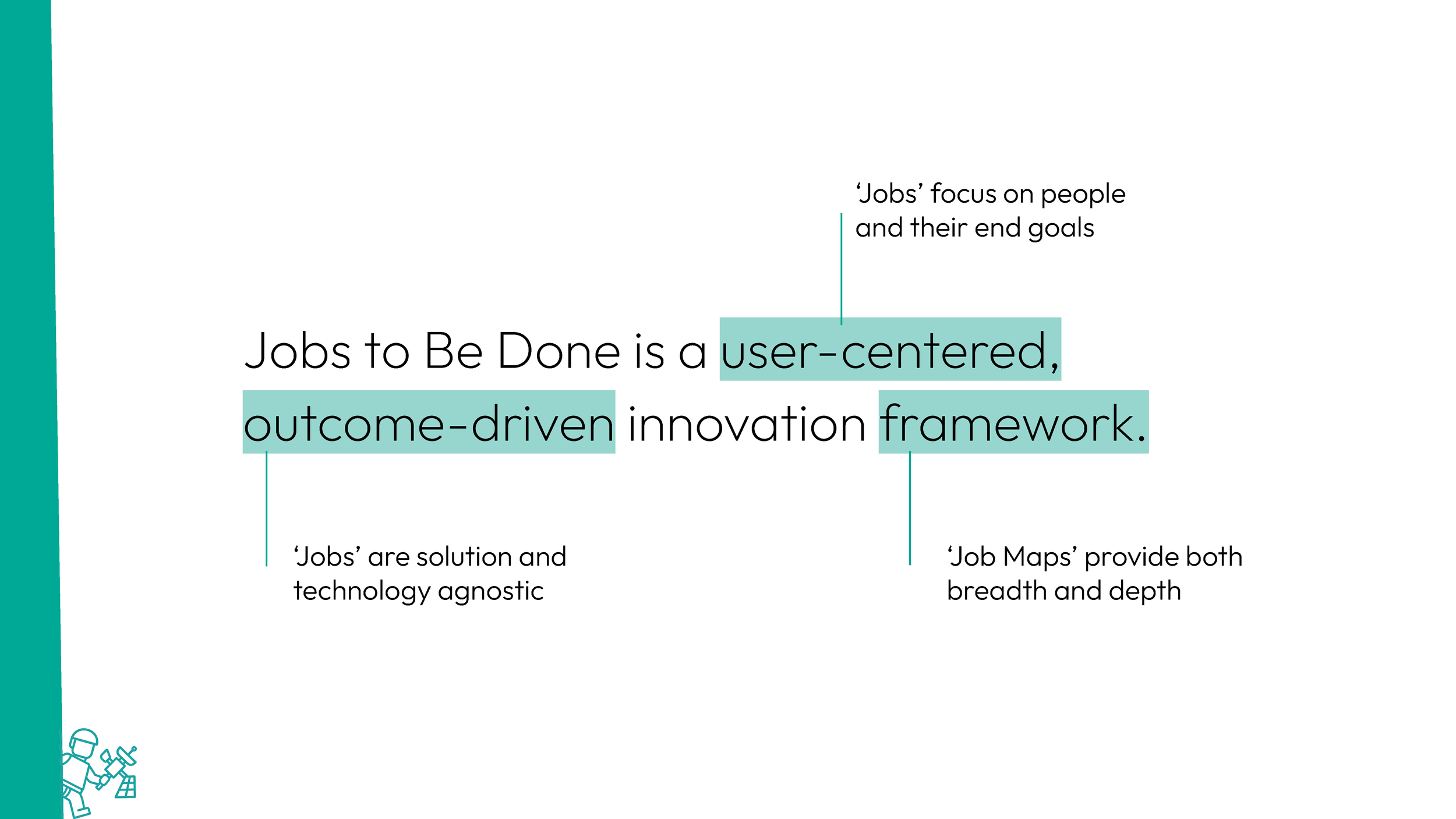

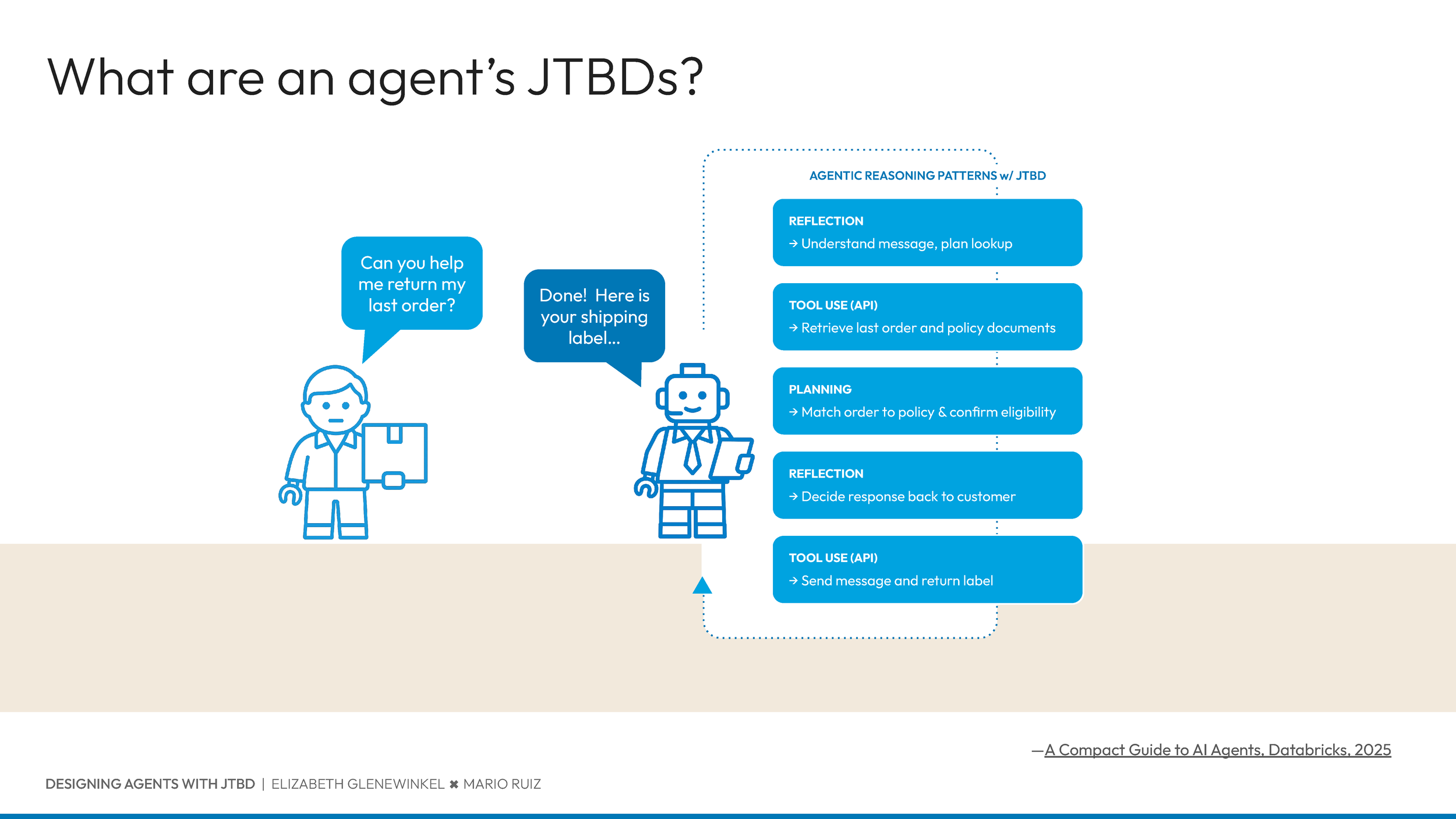
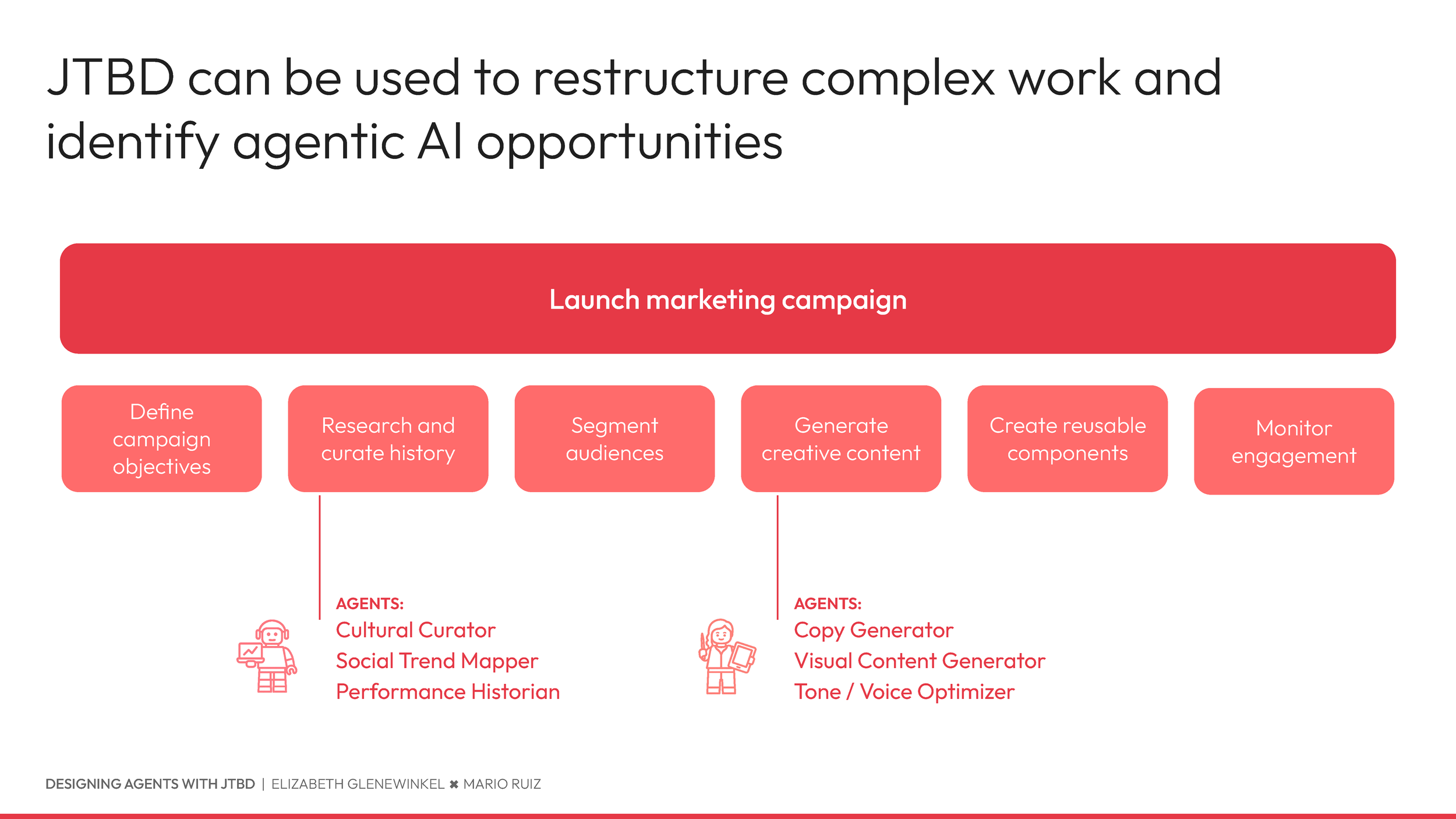
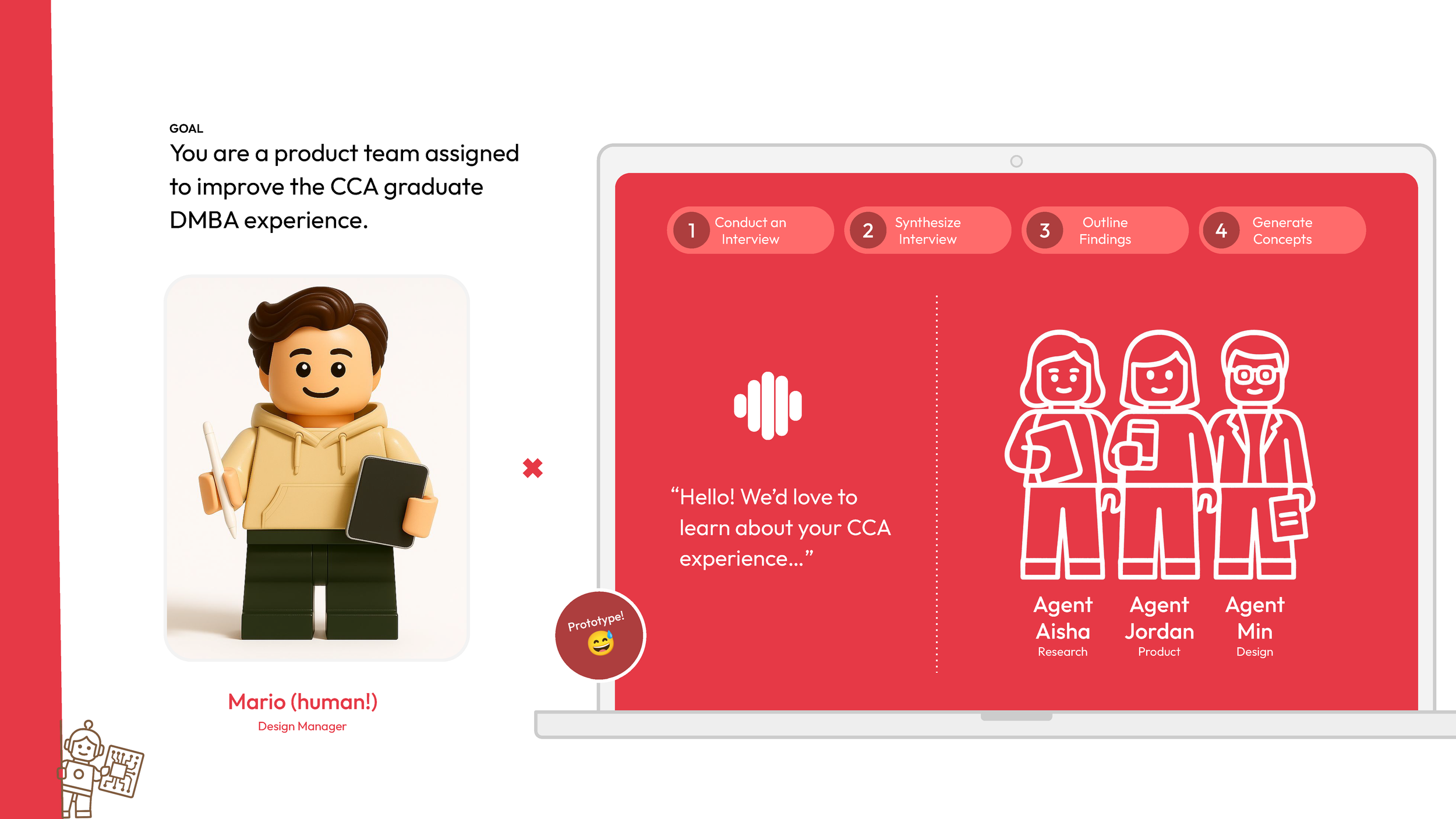





JOBS TO BE DONE REFRESHER
Participants revisited the core principles of Jobs to Be Done (JTBD), learning how to break down user goals from aspirational objectives to detailed jobs. Through real-world examples, they saw how JTBD structures thinking around outcomes rather than solutions, setting a strong foundation for later design work.
AI JOB MAPPING AND AGENTIC CAPABILITIES
Participants learned how to use structured prompts with generative AI to create job maps that captured user goals across a workflow. We then introduced agentic capabilities like planning, memory, and tool use, helping participants map where AI agents could assist or automate meaningful parts of the journey.
JTBD AND PRIORITIZING AGENTIC AI
JTBD helps make sense of complex work by focusing on what people are actually trying to get done. By mapping jobs as a sequence of outcomes, teams can prioritize where to focus and spot where AI agents can support, simplify, or scale the outcomes that matter most.
DESIGNING AN AGENTIC WORKFLOW
Participants worked in teams to re-design an agentic workflow for building a product. They blended human actions and AI capabilities intentionally, creating structured workflow for agentic solutions. Collaborative critiques helped surface strengths, gaps, and new possibilities for iteration and refinement.




